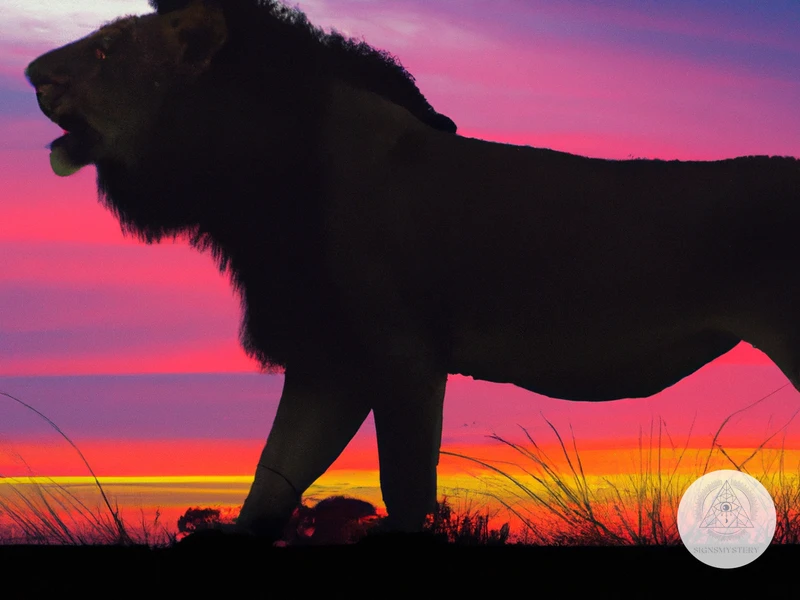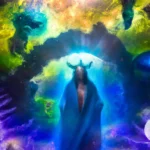Africa is a continent filled with diverse cultures and rich traditions that have been shaped by centuries of history. One fascinating aspect of African tribal customs is the belief in spirit animals, which play a significant role in the lives of individuals and communities. Spirit animals are believed to be guides and protectors, providing wisdom, strength, and guidance to those who connect with them. In this article, we will explore the concept of spirit animals in African tribal customs, their role in rituals and ceremonies, their presence in tribal art and symbols, their depiction in legends and folklore, and their enduring cultural significance. Join us on this journey as we delve into the fascinating world of spirit animals and uncover the profound meaning they hold within African tribal traditions.
Understanding Spirit Animals
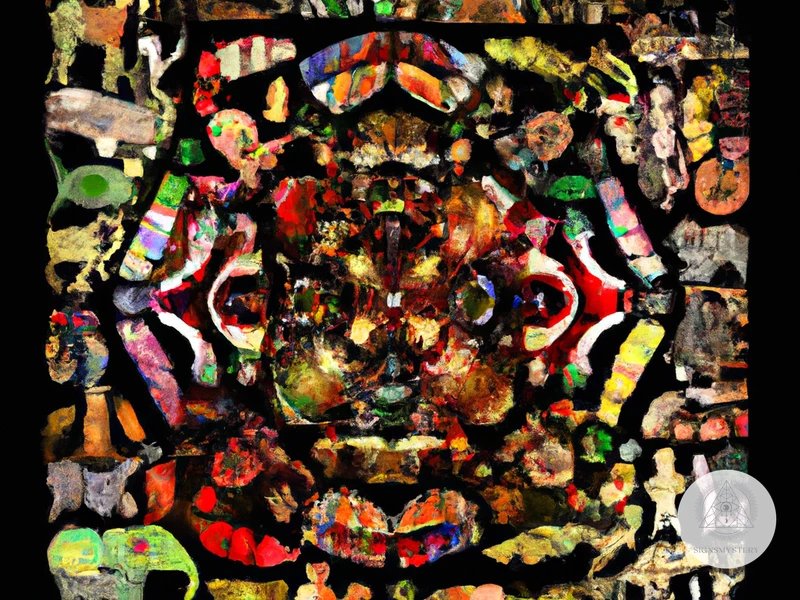
Spirit animals hold a prominent place in African tribal customs, embodying a deep connection between humans, nature, and the spiritual realm. Spirit animals are often referred to as animal guides or totems, and they are believed to possess unique qualities and characteristics that individuals can draw upon for guidance and protection. These animal spirits are not chosen by individuals but rather revealed through visions, dreams, or specific encounters with animals in the physical world. In African tribal customs, the belief in spirit animals is rooted in a profound understanding of the interconnectedness between humans and the natural world. The symbolism and significance of different spirit animals can vary across tribes and regions, reflecting the diverse landscapes and animal life found within the continent. To delve deeper into the understanding of spirit animals and their roles in different cultures, you can also explore their connections in indigenous cultures or their significance in Chinese mythology.
1. Definition of Spirit Animals
The definition of spirit animals in African tribal customs encompasses a deep spiritual connection between humans and the animal kingdom. Spirit animals are seen as guides or guardian spirits that embody unique qualities and characteristics. These animal spirits are not chosen by individuals but rather revealed through visions, dreams, or encounters with specific animals in the physical world. The belief in spirit animals is rooted in the understanding that everything in nature is interconnected and possesses its own spiritual essence. African tribes recognize that animals have their own wisdom, strengths, and instincts, which can offer guidance and protection to individuals who seek their wisdom. There is a belief that these animals possess inherent knowledge and can communicate messages from the divine realm. Understanding the significance of spirit animals in African tribal customs provides a glimpse into the profound spiritual connection that exists between humans and the natural world. To explore more about the symbolism and meaning of spirit animals in a different context, you can delve into their significance in lucid dreaming and the role they play in understanding one’s subconscious mind.
2. Belief in Animal Spirits
The belief in animal spirits is deeply ingrained in African tribal customs, with a profound understanding that animals possess a spiritual essence and hold unique powers. This belief system is rooted in the belief that animals are not only physical beings but also spiritual entities that can communicate with humans and offer guidance. Here are some key aspects of the belief in animal spirits in African tribal customs:
1. Animal as Messengers: African tribes believe that animals can serve as messengers between the spiritual and physical realms. When an animal appears in dreams, visions, or real-life encounters, it is seen as a message from the spirit world. The behavior, appearance, or characteristics of the animal can convey important insights or warnings.
2. Animal Symbolism: Each animal holds specific symbolism and qualities that are associated with certain traits or aspects of life. For example, a lion may represent strength and leadership, while a snake may symbolize transformation and healing. These symbolic meanings are deeply embedded in the cultural fabric of African tribes and help individuals understand themselves and their place within the natural world.
3. Power and Protection: Animals are believed to possess innate powers and protective qualities that can be called upon by individuals. By connecting with a specific animal spirit, individuals can tap into its power and receive guidance, strength, and protection. This connection is often established through rituals, ceremonies, and prayers.
4. Ancestral Connections: Animals are seen as spiritual beings that are closely connected to ancestors and the spirit world. It is believed that ancestral spirits can take the form of animals to communicate with and guide their descendants. This belief strengthens the bond between humans, animals, and the ancestral realm.
5. Respect and Harmony: African tribes hold a deep respect for animals and view them as equals in the web of life. They believe in living in harmony with nature and recognizing the interconnectedness of all beings. This reverence for animal spirits fosters a sense of responsibility towards the environment and encourages sustainable practices.
The belief in animal spirits in African tribal customs is a testament to the deep spiritual connection between humans and the animal kingdom. It is a belief system that honors and acknowledges the wisdom, power, and guidance that animals can provide to individuals and communities alike.
3. Connection to Nature and Ancestors
Spirit animals in African tribal customs have a profound connection to nature and ancestors. They are seen as intermediaries between humans and the natural world, serving as a bridge that allows individuals to tap into the wisdom and guidance of their ancestors. This connection is rooted in the belief that all living beings, including animals and humans, are part of a larger interconnected web of life. In many African tribes, there is a deep respect for the natural world, and animals are considered sacred and powerful beings. Spirit animals are believed to carry the essence and knowledge of their species, making them powerful allies and sources of spiritual guidance. People may connect with their spirit animal through dreams, visions, or encounters in the physical world. This connection with spirit animals allows individuals to access the wisdom and healing powers of nature, as well as draw strength from the collective experience and wisdom of their ancestors. It serves as a reminder of the inextricable bond between humans and the natural world, highlighting the importance of preserving and respecting the environment and the creatures that inhabit it.
4. Role in Guiding and Protecting Individuals
Spirit animals in African tribal customs play a crucial role in guiding and protecting individuals. They are believed to serve as spiritual guides, offering wisdom, strength, and support to those who connect with them. These animal spirits are seen as allies and guardians, assisting individuals in navigating their life paths. Spirit animals are thought to possess specific qualities and characteristics that individuals can embody and learn from. For example, the lion spirit animal represents courage and leadership, while the elephant symbolizes strength and wisdom. When someone identifies their spirit animal, they can seek guidance and inspiration from the animal’s traits and behaviors. This connection helps individuals make important decisions, overcome challenges, and find their true purpose in life. Additionally, spirit animals are believed to provide protection from negative energies and spiritual harm. They act as spiritual shields, warding off malevolent forces and bringing a sense of security and well-being to those who call upon them. The role of spirit animals in guiding and protecting individuals is deeply respected and cherished within African tribal customs, as they are seen as powerful allies and sources of spiritual strength.
Spirit Animals in African Tribal Customs
Spirit animals play a vital role in African tribal customs, permeating various aspects of community life and individual experiences. From rituals and ceremonies to tribal art and symbols, their presence is deeply woven into the fabric of African cultures. During rituals and ceremonies, individuals connect with their spirit animals through songs, dances, and trance-like states, seeking their guidance and protection. Tribal art and symbols often depict spirit animals, showcasing their revered status and representing the unique qualities associated with each animal. These depictions serve as powerful reminders of the spiritual bond between humans and animals. Spirit animals are a prominent feature in tribal legends and folklore, where their stories are passed down through generations, conveying valuable lessons and cultural wisdom. Additionally, African tribal customs also incorporate the healing and medicinal properties of spirit animals, using their energy and symbolism to support physical and spiritual well-being. The multifaceted presence of spirit animals in African tribal customs demonstrates the deep reverence for nature, ancestral connections, and the meaningful roles these animals play in guiding and protecting individuals and communities.
1. Rituals and Ceremonies
Rituals and ceremonies play a crucial role in African tribal customs when it comes to spirit animals. These rituals are designed to establish a connection with spirit animals and to seek their guidance and protection. During these ceremonies, individuals often engage in specific dances, songs, and chants that are believed to invoke the presence of the spirit animals. Rituals may involve the use of symbolic items such as masks, feathers, or animal skins, which are considered sacred and hold spiritual significance. The purpose of these rituals is to create a sacred space where individuals can communicate with their spirit animals, receive messages, and seek guidance for various aspects of life, such as healing, hunting, or making important decisions. It is believed that through these rituals and ceremonies, the spirit animals can offer their wisdom, strength, and protection to individuals and the community as a whole. These rituals are deeply rooted in African tribal customs and continue to be practiced today, keeping the ancient traditions alive and fostering a strong spiritual connection between humans and the animal kingdom.
2. Tribal Art and Symbols
Tribal art and symbols play a significant role in African cultures, acting as a visual representation of the spiritual beliefs and traditions of the community. Within the context of spirit animals, tribal art and symbols often depict the animal spirits that hold special meaning within the tribe. These artistic representations can be found in various forms such as masks, sculptures, paintings, and carvings. Each tribe has its unique artistic style and symbolism, infused with local traditions and beliefs. The use of colors, patterns, and materials in tribal art conveys specific messages and connections to spirit animals. For example, the use of earthy tones and natural materials like wood or clay might represent a connection to the land and animals found within the region. The art often captures the essence and characteristics of the spirit animal, emphasizing its power, wisdom, or protective qualities. Additionally, symbols like specific animal tracks or feathers can be incorporated into the artwork to convey associations with specific spirit animals. The use of lion motifs, for instance, may symbolize strength and leadership, while the depiction of an eagle may represent freedom and vision. Through tribal art and symbols, the spirit animals are not only visually represented but also honored and revered, serving as a constant reminder of their significance in African tribal customs.
3. Tribal Legends and Folklore
Tribal legends and folklore form an integral part of African tribal customs, providing a rich tapestry of stories and myths that revolve around spirit animals. Tribal legends and folklore often depict the profound relationship between humans and animals, showcasing the spiritual and symbolic connections that exist. These stories are passed down through generations, preserving cultural heritage and wisdom. In these tales, spirit animals are often portrayed as powerful and wise beings, capable of imparting important lessons and guidance to individuals and communities. The stories may narrate how a particular spirit animal came to serve as a guardian or protector, or how they played a crucial role in the tribe’s history or creation myth. These legends and folklore not only entertain and captivate but also serve as a means to teach important values, morals, and cultural norms. They are a testament to the enduring significance of spirit animals in African tribal customs and offer insight into the cultural beliefs and worldviews of these communities.
4. Healing and Medicine
4. Healing and Medicine
In African tribal customs, spirit animals are not only seen as guides and protectors but also as powerful sources of healing and medicine. Different animals are believed to possess specific healing properties and energies that can be harnessed for physical, emotional, and spiritual well-being.
One example of the healing power of spirit animals is the belief in the medicinal properties of plants and herbs associated with certain animal spirits. For instance, the lion represents courage and strength, and its association with certain plants is believed to provide strength and vitality to those in need. The leopard, known for its agility and stealth, is associated with plants that have properties for enhancing flexibility and agility in the body.
African tribal customs often include rituals and ceremonies centered around healing and connecting with spirit animals. These ceremonies involve specific chants, songs, dances, and even the use of certain animal parts or symbols to invoke the healing powers of the corresponding spirit animal. This connection to spirit animals is believed to help restore balance, harmony, and well-being to individuals and communities.
The role of traditional healers or shamans is significant in African tribal communities. These healers possess deep knowledge and understanding of the spiritual realms and the interconnectedness between humans, animals, and nature. They are believed to communicate with spirit animals and channel their healing energies to facilitate physical and spiritual healing. This ancient practice is passed down through generations, ensuring the preservation of indigenous knowledge and healing traditions.
The role of spirit animals in healing and medicine within African tribal customs is deeply rooted in the belief that the spiritual realm can positively influence physical and emotional well-being. The connection to specific animals and plants allows individuals to tap into the healing energies and wisdom of these spirit animals for personal and communal healing. This profound belief in the power of spirit animals to restore balance and promote wellness continues to play an important role in African tribal cultures today.
Enduring Cultural Significance
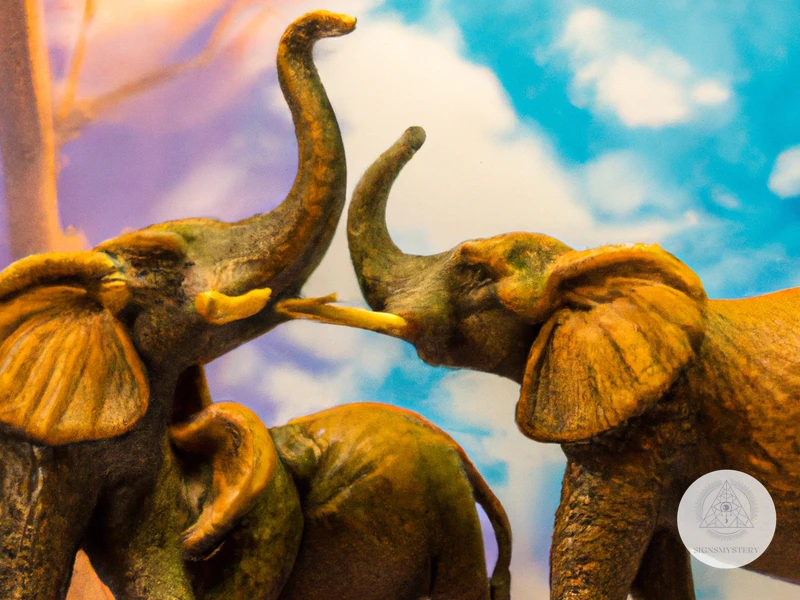
The enduring cultural significance of spirit animals in African tribal customs is a testament to the profound spiritual bond that exists between humans and the animal kingdom. Throughout generations, African tribes have developed a deep reverence for animals and nature, recognizing them as vital sources of wisdom, guidance, and protection. The connection with spirit animals serves as a reflection of tribal identity, with different tribes associating themselves with specific animal spirits that embody their unique values and
Subscribe to Our Newsletter
Sign up to receive the latest news and updates.
1. Spiritual Bond with Animals and Nature
The spiritual bond between African tribes and animals/nature is deeply ingrained in their customs and belief systems. It is believed that humans and animals share a sacred connection, and that animals possess unique spiritual qualities that can guide and inspire individuals. African tribes view animals as divine messengers and spiritual beings, and they recognize the interconnectedness between humans and the natural world. The spiritual bond with animals and nature extends beyond mere physical existence. It involves a profound respect for the environment and a recognition of the wisdom and teachings that can be gleaned from observing and interacting with animals and their habitats. This bond is reflected in various aspects of tribal life, from rituals and ceremonies that honor specific animal spirits to the depiction of animals in tribal art and symbols. The spiritual bond with animals and nature is not just a belief, but a way of life for African tribes, serving as a reminder of their deep connection to the natural world and their role as stewards of the Earth’s resources.
2. Reflection of Tribal Identity
The concept of spirit animals in African tribal customs goes beyond individual guidance and protection; it also reflects and reinforces tribal identity. Each tribe has its own set of spirit animals that are deeply connected to their cultural heritage and history. These spirit animals serve as symbolic representations of the tribe’s values, strengths, and collective identity. They often embody the characteristics and abilities that a tribe aspires to possess or values greatly. For example, the lion may be revered as a spirit animal by a tribe known for its bravery and leadership, while the elephant may symbolize strength and wisdom for another tribe. The reflection of tribal identity through spirit animals is not only seen in their symbolism but is also celebrated in various cultural practices. Tribal dances and rituals often incorporate the movements and behaviors of specific animal spirits, allowing members of the tribe to embody and connect with their ancestral lineage. Additionally, art forms such as masks, sculptures, and paintings often feature depictions of spirit animals, serving as visual reminders of tribal identity and the sacred connection they share with the animal kingdom. This reflection of tribal identity through spirit animals strengthens a sense of belonging and unity among tribe members, fostering a deep appreciation for their cultural heritage and ancestral roots.
3. Preservation of Traditional Practices
The preservation of traditional practices is a vital aspect when it comes to the role of spirit animals in African tribal customs. These customs have been passed down through generations, serving as a way to maintain cultural heritage and keep the spiritual traditions alive. 1. Rituals: Tribes engage in various rituals that honor and invoke the presence of spirit animals. These rituals, such as sacred dances, drumming, and chanting, serve as a means of connecting with the animal spirits and seeking their guidance. They are performed during significant events, such as harvest ceremonies, rites of passage, or community gatherings. 2. Oral Traditions: African tribes have a strong oral tradition where stories and legends are passed down orally from elders to younger generations. These stories often feature spirit animals as central characters, teaching moral lessons and preserving the wisdom and knowledge associated with these animal spirits. 3. Art and Crafts: African tribal art and crafts play a crucial role in preserving the symbolism and representation of spirit animals. Various art forms such as carvings, paintings, and sculptures depict these animal spirits in intricate detail, ensuring that their significance is visually preserved. 4. Shamanic Practices: Traditional healers, or shamans, play a vital role in preserving the spiritual practices associated with spirit animals. They possess extensive knowledge and understanding of the animal kingdom and use their abilities to communicate with these spirits for healing and guidance. By passing down their wisdom and teaching apprentices, they ensure that the understanding and practice of spirit animals continue to thrive. Through these collective efforts, African tribes strive to keep their traditional practices intact, ensuring that the role of spirit animals remains a cornerstone of their cultural identity.
Conclusion
The role of spirit animals in African tribal customs is undeniably significant, representing a deep spiritual bond between humans and the natural world. Throughout history, African tribes have embraced the belief in spirit animals as guides and protectors, incorporating them into various aspects of their customs and traditions. The connection to spirit animals is not simply a matter of superstition or folklore but is deeply rooted in the cultural fabric of these communities. It serves as a reflection of their tribal identity, symbolizing their connection to nature, ancestors, and the divine. The preservation of traditional practices surrounding spirit animals is paramount, as it ensures the continuity of ancient wisdom and the transmission of cultural heritage to future generations. By honoring and respecting the significance of spirit animals, African tribes continue to uphold the enduring cultural legacy of their ancestors. Furthermore, the reverence for spirit animals highlights the invaluable lessons that humans can learn from the natural world, promoting a deeper understanding and appreciation of the environment. Spirit animals, with their wisdom, guidance, and protection, remain an integral aspect of African tribal customs, enriching the lives of individuals and fostering a harmonious relationship between humans and nature.
Frequently Asked Questions
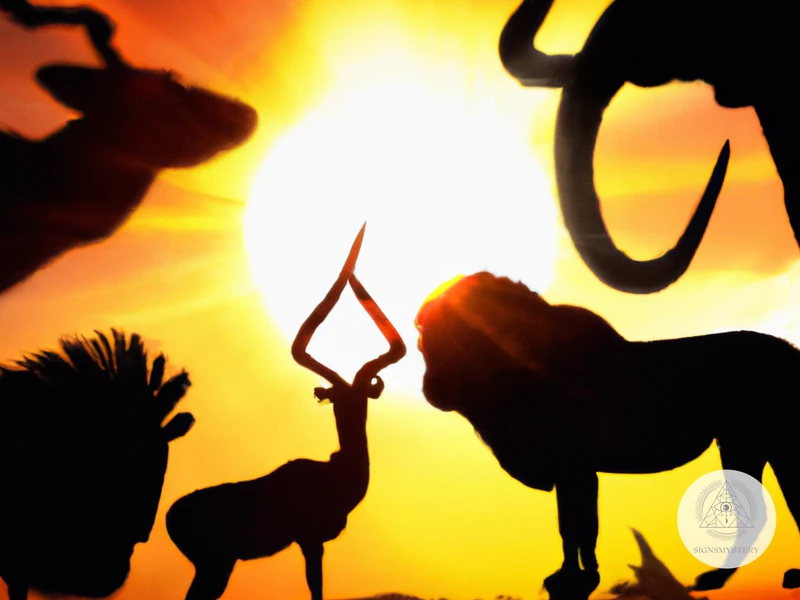
1. What is the definition of spirit animals?
Spirit animals are believed to be animal guides or totems in various cultures around the world, including African tribal customs. They are considered to be symbolic representations of qualities, characteristics, and wisdom that individuals can connect with for guidance and protection.
2. How does one believe in animal spirits?
Belief in animal spirits is rooted in a deep spiritual connection to nature and the belief that animals possess inherent wisdom and power. Individuals can believe in animal spirits through personal experiences, dreams, visions, or specific encounters with animals that they feel a strong connection to.
3. What is the role of spirit animals in African tribal customs?
In African tribal customs, spirit animals play a significant role in various aspects of life. They are present in rituals and ceremonies, depicted in tribal art and symbols, featured in legends and folklore, and even associated with healing and medicine. They serve as guides and protectors, offering wisdom, strength, and guidance to individuals and communities.
4. How are spirit animals incorporated in rituals and ceremonies?
Spirit animals are often invoked and honored during rituals and ceremonies in African tribal customs. They can be called upon through prayers, songs, dances, or specific offerings made to them. These rituals aim to establish a connection with the spirit animal and seek its guidance, protection, and blessings.
5. What role does tribal art and symbols play in representing spirit animals?
Tribal art and symbols are powerful means of representing spirit animals in African tribal customs. They can be depicted in paintings, carvings, masks, or tattoos, showcasing the unique characteristics and symbolism associated with each spirit animal. These art forms serve as visual representations of the spiritual connection between humans and animals.
6. What are the legends and folklore surrounding spirit animals?
Legends and folklore surrounding spirit animals are integral to African tribal customs. These stories often narrate the origins of certain spirit animals, their special qualities, and the lessons they impart to humans. They are passed down through generations, preserving the wisdom and knowledge associated with these revered beings.
7. How are spirit animals associated with healing and medicine?
In African tribal customs, spirit animals are believed to possess healing powers. Shamans or traditional healers may communicate with spirit animals during healing rituals to seek their guidance in diagnosing and treating ailments. The spirit animal’s energy and wisdom are invoked to restore balance and well-being.
8. How do spirit animals create a spiritual bond with animals and nature?
The belief in spirit animals creates a deep spiritual bond between individuals, animals, and nature. It recognizes the interconnectedness and interdependence of all living beings. Through the symbolism and qualities embodied by spirit animals, people develop a profound respect and reverence for the natural world.
9. How do spirit animals reflect tribal identity?
Spirit animals are deeply intertwined with a tribe’s identity and culture. Different tribes may have specific spirit animals associated with them, representing their history, values, or geographic location. The presence of these spirit animals in tribal customs serves as a reflection of the collective identity and heritage of the community.
10. Why is the preservation of traditional practices important for spirit animals?
The preservation of traditional practices is essential for maintaining the integrity and significance of spirit animals in African tribal customs. It ensures that the wisdom, rituals, and beliefs surrounding spirit animals are passed down to future generations, keeping the cultural heritage alive and allowing individuals to continue benefiting from the guidance and protection of these revered beings.
References
Frequently Asked Questions

1. How are spirit animals defined in African tribal customs?
In African tribal customs, spirit animals are believed to be a representation of powerful animal spirits or energies that are connected to individuals and communities.
2. What is the significance of believing in animal spirits?
Believing in animal spirits is significant as it allows individuals to establish a deeper connection with the natural world and tap into the wisdom and power of these animals.
3. How do spirit animals connect people to nature and ancestors?
Spirit animals are seen as a bridge between humans and the natural world, enabling individuals to tap into the knowledge and wisdom passed down by their ancestors.
4. How do spirit animals guide and protect individuals?
Spirit animals are believed to guide and protect individuals by offering signs, symbols, and messages, which help them navigate through life’s challenges and make important decisions.
5. What role do rituals and ceremonies play in African tribal customs?
Rituals and ceremonies are essential in African tribal customs as they provide a platform for connecting with spirit animals and seeking their guidance and blessings.
6. How is tribal art and symbols associated with spirit animals?
Tribal art and symbols often depict spirit animals and their characteristics, serving as a visual representation of the connection between humans and these animal spirits.
7. What role does tribal legends and folklore have in relation to spirit animals?
Tribal legends and folklore often narrate stories of encounters with spirit animals, highlighting their importance and the lessons they impart to individuals and communities.
8. How are spirit animals intertwined with healing and medicine?
In African tribal customs, spirit animals are believed to possess healing powers and their guidance is sought in rituals and practices aimed at physical, emotional, and spiritual healing.
9. What is the spiritual bond between animals and nature in African tribal customs?
In African tribal customs, there is a deep spiritual bond between animals and nature, with animals being seen as sacred and an integral part of the natural order.
10. How do spirit animals reflect tribal identity?
Spirit animals often reflect the specific characteristics and qualities that a tribe values, becoming an important symbol of their identity and cultural heritage.

